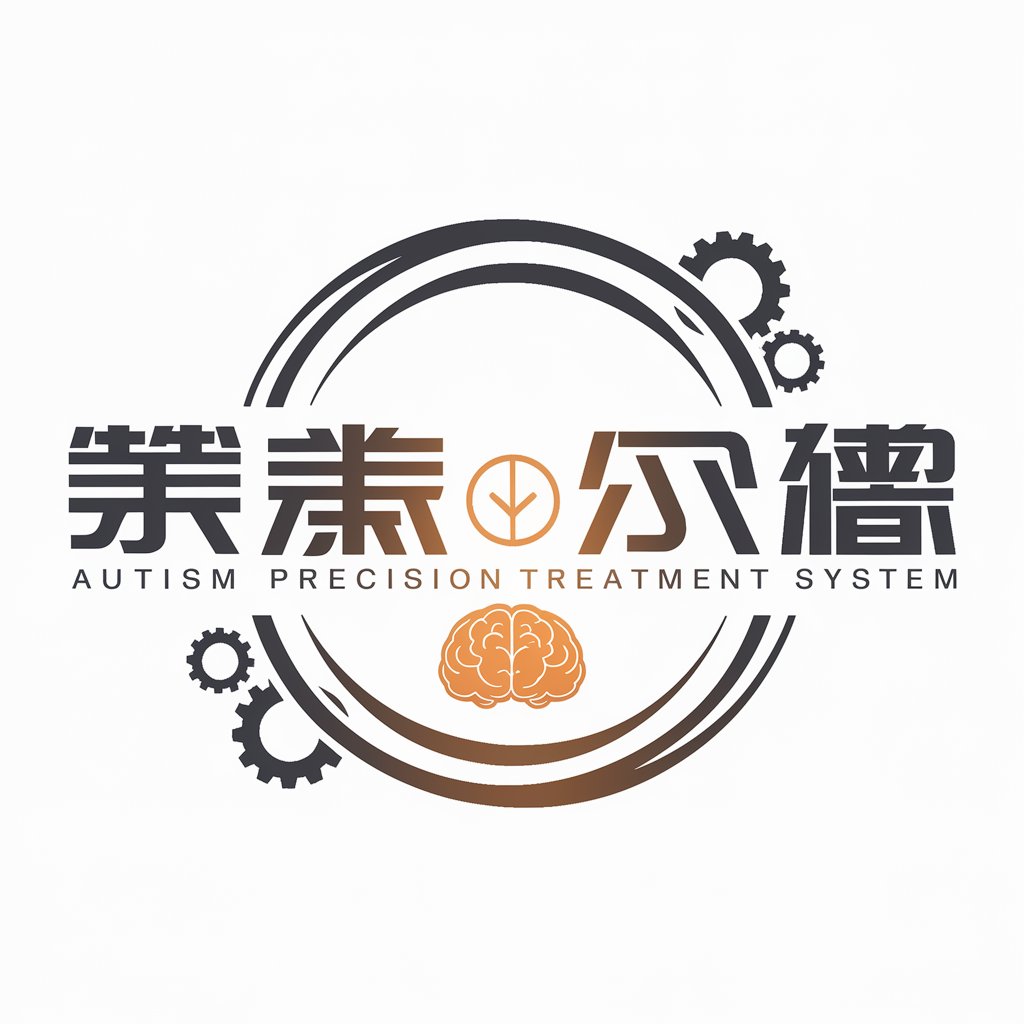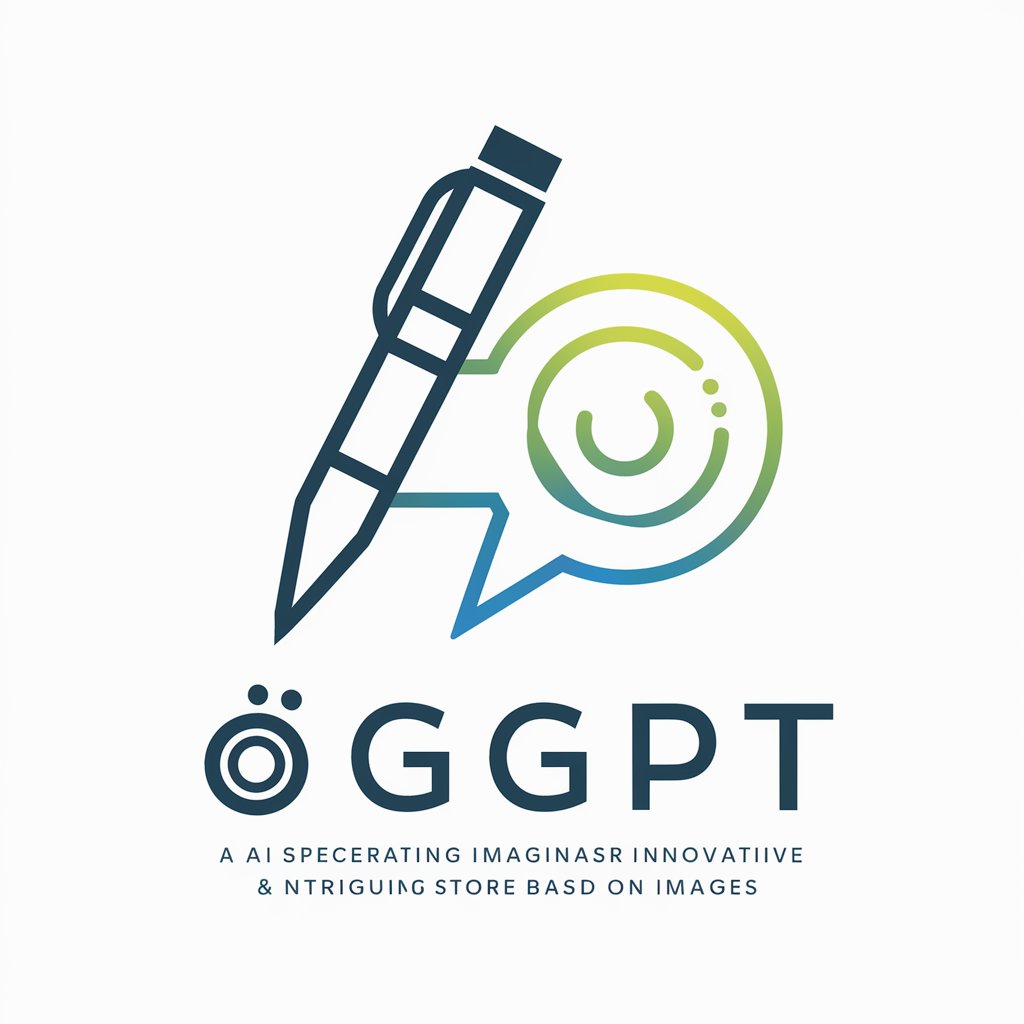孤独症精准治疗体系 - Precision Autism Treatment

Welcome! Your path to personalized autism care starts here.
Tailoring autism care with AI-driven precision
Explore the genetic underpinnings of autism by...
Design a comprehensive treatment plan for autism that includes...
Analyze the effectiveness of various interventions in improving...
Create a user-friendly interface for tracking and managing...
Get Embed Code
孤独症精准治疗体系: An Overview
孤独症精准治疗体系 is a highly specialized system designed for the precise diagnosis, classification, and treatment of autism spectrum disorders (ASD). Utilizing a wealth of research and clinical data, it enables the customization of treatment plans based on individual patient characteristics. This system integrates various therapeutic approaches, including pharmacological treatments, nutritional guidance, rehabilitation training, language therapy, probiotics, stem cell and immune cell therapies, ensuring a comprehensive management of ASD. The system is dynamic, with its recommendations evolving in response to emerging research and clinical evidence. Powered by ChatGPT-4o。

Key Functions of 孤独症精准治疗体系
Precision Diagnosis
Example
Identification of BCKDK deficiency in ASD patients, enabling specific amino acid supplementation to prevent or mitigate symptoms 【13†source】.
Scenario
In a child with developmental delays and autistic features, a diagnosis of BCKDK deficiency is made, and targeted nutritional intervention is initiated.
Therapeutic Plan Customization
Example
Adjustment of treatment protocols based on individual genetic profiles, such as implementing a high-protein diet and BCAA supplements for BCKDK-deficient patients【14†source】.
Scenario
For a patient with BCKDK deficiency and epilepsy, a customized diet rich in proteins and BCAAs is provided, improving seizure control and developmental skills.
Ongoing Treatment Adaptation
Example
Regular monitoring and adjusting treatments, like modifying the BCAA dosage for optimal seizure management and cognitive development in patients【14†source】.
Scenario
Continuous evaluation and adjustment of BCAA dosage in an ASD patient with BCKDK deficiency to maintain effective plasma BCAA levels and manage seizures.
Ideal Users of 孤独症精准治疗体系
Healthcare Professionals
Pediatricians, neurologists, and geneticists who require an advanced tool for diagnosing and treating ASD with a focus on precision medicine. They benefit from the system's comprehensive diagnostic capabilities and tailored treatment strategies.
Research Scientists
Researchers in neurodevelopmental disorders and ASD seeking to understand the complex interplay of genetics, nutrition, and therapy in ASD management. The system offers a rich source of data for empirical studies.
Patients and Caregivers
Individuals with ASD and their families seeking personalized and effective treatment plans. The system provides them with targeted therapies that address specific ASD manifestations and comorbidities.

How to Use 孤独症精准治疗体系
Visit for a Trial
Start by going to yeschat.ai to sign up for a free trial, no ChatGPT Plus subscription or login required.
Review the Literature
Familiarize yourself with the latest research and findings on autism spectrum disorders, particularly focusing on genetic and biochemical factors influencing the condition.
Evaluate Patient Data
Collect and analyze patient-specific data, including genetic information, behavioral patterns, and any coexisting conditions, to identify personalized treatment avenues.
Choose Treatment Strategies
Based on the analysis, select a combination of therapeutic strategies tailored to the patient. This may include dietary supplements, medication, and behavioral therapy.
Monitor and Adjust
Regularly monitor the patient's progress and make necessary adjustments to the treatment plan based on their response and any new research findings.
Try other advanced and practical GPTs
英語★独学先生
AI-Powered English Learning Companion

独立起業家のためのビジネスコーチング
Empowering Solo Entrepreneurs with AI Wisdom

独立起業家のためのデジタルマーケティング指南
Empowering Solo Entrepreneurs with AI-Driven Marketing Insights

笨蛙
Empowering your research with AI guidance.

塔羅蛙
Unlock insights with AI-powered tarot readings

蛙の禅指導
Guiding your Zen journey with AI.

(孩子王系列)数独之王
Master Sudoku with AI-Powered Assistance

瞎编gpt
Craft Stories from Images, Powered by AI

谁是瞎掰王
Unravel tales with AI-powered deduction

瞎猜足球
AI-Powered Football Match Predictions

Garbage in Osaka
Streamline your waste disposal in Osaka with AI.

Meal Picker
Crafting personalized meal journeys with AI.

Q&A on 孤独症精准治疗体系
What is 孤独症精准治疗体系?
It's a precision treatment system for autism spectrum disorders, utilizing a wide array of therapeutic approaches based on individual genetic and biochemical profiles to improve outcomes.
How does it determine the best treatment?
By analyzing patient-specific information, including genetic data, and current research on autism, the system identifies personalized treatments targeting the underlying causes of symptoms.
Can it predict treatment effectiveness?
Yes, by leveraging data on similar cases and outcomes, it can forecast the potential effectiveness of chosen treatments and possible side effects, helping to tailor the approach more closely to the patient.
Is it suitable for all autism patients?
While designed to be adaptable, its effectiveness may vary based on the availability and quality of patient-specific data and the complexity of individual cases.
How often is the treatment plan updated?
The treatment plan is regularly reviewed and updated in response to the patient's progress and any new research findings, ensuring the approach remains optimally tailored over time.
